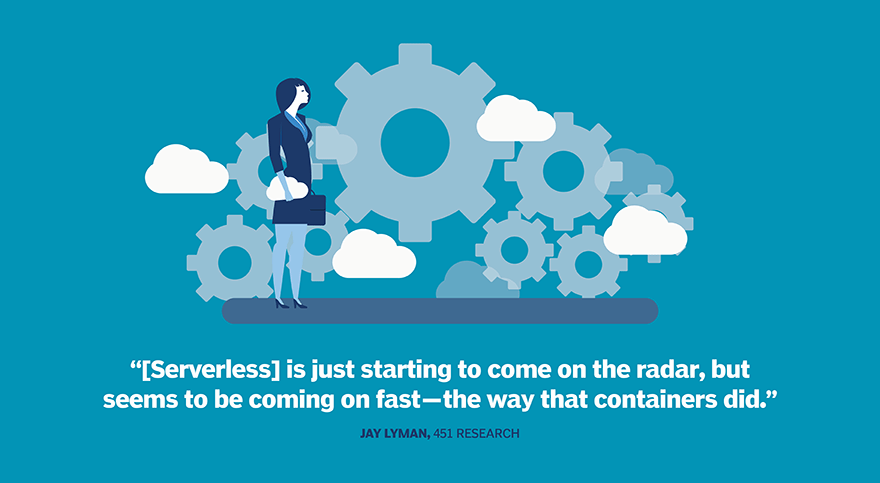Five cloud computing skills to propel your career in 2018
Serverless architectures continue to generate buzz across the cloud industry. And the technology's potential benefits make serverless skills an important addition to any cloud professional's resume, whether an architect, developer or admin.
"[Serverless] is just starting to come on the radar, but seems to be coming on fast -- the way that containers did," said Jay Lyman, principal analyst at 451 Research. "It's compelling to end users because there are economic benefits and a lack of complexity."
Serverless architectures eliminate the need for developers to provision and manage underlying infrastructure when they want to build and run an application. Serverless applications are also event-driven, which means their components, or functions, only run when triggered and shut done once a task is complete. Cloud providers only charge users for compute resources when those functions run, so costs don't pile up as an application sits idle.
While these cost-savings are a big lure, they aren't a guarantee, and IT pros need the knowledge to dig further and know which types of applications are best for serverless computing. For example, applications that run constantly might cost an organization more on a serverless platform than on traditional cloud infrastructure.
IT pros can evolve their cloud computing skills for serverless in various ways. For starters, familiarize yourself with some of the popular serverless platforms -- also known as functions as a service (FaaS) offerings -- such as AWS Lambda, Azure Functions, Google Cloud Functions and IBM Cloud Functions.
In addition, prepare to manage serverless applications differently than more traditional apps. Serverless architectures break an application down into various individual functions, so admins must monitor performance, troubleshoot and track usage for each, and also rethink scaling and load balancing practices.
Since the technology is still in its early days, it's difficult for companies to find candidates with serverless experience. But for IT pros, this talent gap represents a big opportunity in 2018.
"It's going to be a little like machine learning, I would expect, where there's high demand for some expertise on how to use these [serverless architectures], but not a lot of talent that's out there," Lyman said.






